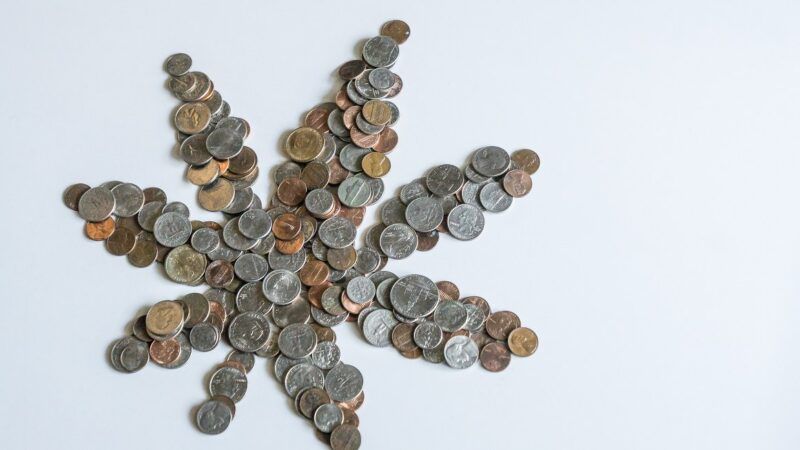No, California Shouldn't Keep Crazy High Marijuana Taxes 'For the Children'
Child care workers benefit from state subsidies. They’re fighting against possible cuts by encouraging regressive taxes that fuel a new drug war.

Here's California's broken grasp of economics in a nutshell for you: Top lawmakers and government-subsidized and unionized child care workers are arguing that marijuana taxes have to stay extremely high. Lowering them will harm "thousands of children living in poverty and children of color across our state," state Senate President Pro Tempore Toni Atkins (D–San Diego) and Assembly Speaker Anthony Rendon (D–Los Angeles) wrote in a letter to Democratic Gov. Gavin Newsom.
California's marijuana taxes are so high (and actual availability so limited) that the rollout of legal recreational sales has been a disaster. From January 2018 to November 2021 the state has collected $3.12 billion in marijuana tax revenue. While this sounds like a lot, market experts note that at least two-thirds of all marijuana sales are happening through unlicensed dealers to a tune of an estimated $8 billion a year. Even after legalizing marijuana, the black market still dominates California.
The marijuana industry is begging for tax relief from the state in order to encourage more legal retail. Growers in particular have their eye on the state's excise tax, which is by law attached to the inflation rate. And that means taxes for marijuana automatically went up in January thanks to the massive inflation growth we've been seeing nationally.
But California's government has been counting on the tax revenue from sales to bankroll any number of programs, including state-subsidized child care. Now the state is in a bizarre position where government leaders are insisting taxes that drive up retail prices and fuel criminal activity must remain there for the sake of poor minorities, even as the government launches a new war on weed.
This is all bizarre and backward. Sales taxes are regressive and the impacts of them trickle down to the very poor families that Atkins and Rendon claim to represent. It is not California's wealthiest white folks buying and selling weed on the black market.
Honestly, these people are not actually representing the kids and families at all. This entire push is being fueled not by the families themselves but by the beneficiaries of the state's spending: child care service organizations. On Wednesday, children's youth program advocates held a press conference to discourage lawmakers in Sacramento from considering tax reductions in an attempt to encourage retail prices to drop and, thus, legal purchases to rise.
NBC reported this doozy of a quote:
Marianna Hernandez, a prevention manager at Community Coalition, an advocacy and social justice group based in South Los Angeles, said cutting services would be "an insult" to those disproportionately affected by the "war on drugs."
"South L.A. was once overcriminalized for cannabis use, sale and possession," she said. "To now strip the community of the resources coming from the tax revenues is, quite frankly, an insult to South L.A. Black and brown residents, many of which still have family members incarcerated to this day due to marijuana-related charges."
If Hernandez is upset about the incarceration of poor minorities, why on Earth is she encouraging a tax system that continues to foster illegal sales and even more police crackdowns on illegal operations? Los Angeles Police in November raided a warehouse in the heavily Latino community of Sylmar and arrested eight for illegally growing marijuana. Note the Latino and Asian names of those arrested in this bust in San Bernardino County, also last November.
The reality is that this money the state is spending isn't going to the poor kids but to the institutions set up to serve the poor kids and the people who work in them, who, coincidentally, are the people protesting. Last summer, Newsom signed a collective bargaining agreement to subsidize 40,000 child care workers. The state's budget for fiscal year 2021-22 set aside $400 million of cannabis tax revenue for child care purposes. So these people have a stake in keeping taxes high, even if it means other black and brown people still end up getting arrested.
It's a grossly cynical tactic for people who are financially dependent on these state subsidies to come out and argue that these very high, very regressive cannabis taxes are a boon to poor minorities. It is abundantly clear that these communities are still caught up in the marijuana black market because of this very system.
